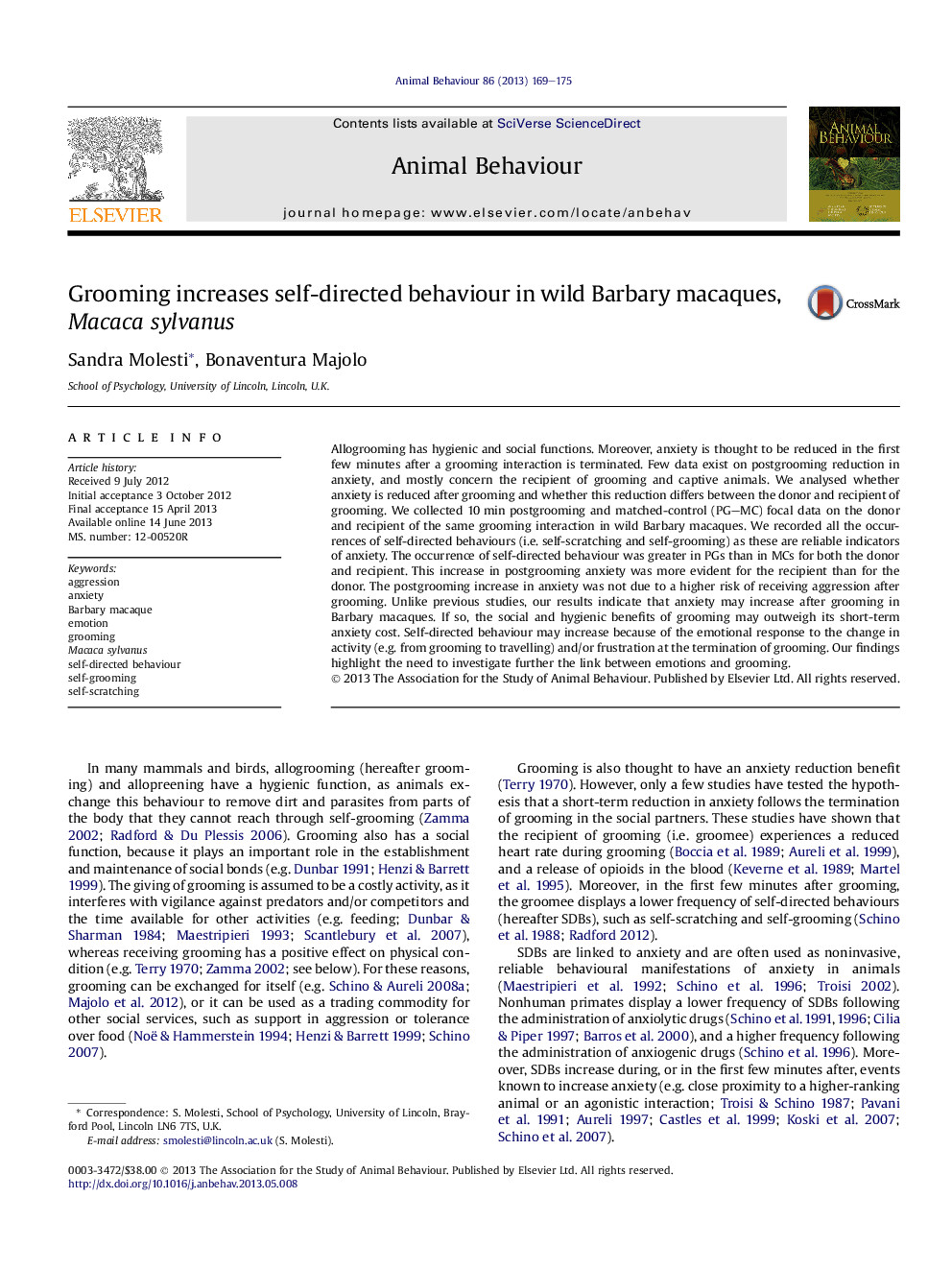| Article ID | Journal | Published Year | Pages | File Type |
|---|---|---|---|---|
| 10970699 | Animal Behaviour | 2013 | 7 Pages |
Abstract
Allogrooming has hygienic and social functions. Moreover, anxiety is thought to be reduced in the first few minutes after a grooming interaction is terminated. Few data exist on postgrooming reduction in anxiety, and mostly concern the recipient of grooming and captive animals. We analysed whether anxiety is reduced after grooming and whether this reduction differs between the donor and recipient of grooming. We collected 10Â min postgrooming and matched-control (PG-MC) focal data on the donor and recipient of the same grooming interaction in wild Barbary macaques. We recorded all the occurrences of self-directed behaviours (i.e. self-scratching and self-grooming) as these are reliable indicators of anxiety. The occurrence of self-directed behaviour was greater in PGs than in MCs for both the donor and recipient. This increase in postgrooming anxiety was more evident for the recipient than for the donor. The postgrooming increase in anxiety was not due to a higher risk of receiving aggression after grooming. Unlike previous studies, our results indicate that anxiety may increase after grooming in Barbary macaques. If so, the social and hygienic benefits of grooming may outweigh its short-term anxiety cost. Self-directed behaviour may increase because of the emotional response to the change in activity (e.g. from grooming to travelling) and/or frustration at the termination of grooming. Our findings highlight the need to investigate further the link between emotions and grooming.
Keywords
Related Topics
Life Sciences
Agricultural and Biological Sciences
Animal Science and Zoology
Authors
Sandra Molesti, Bonaventura Majolo,
